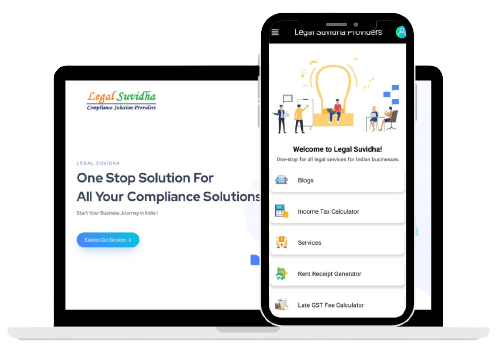ISO 27001: Information Security Management
ISO 27001: Information Security Management – A Simple Guide In today’s digital world, keeping sensitive information safe is more important...
Environmental Impact Assessment (EIA) is a process of evaluating the potential environmental impacts of a proposed project or development. It is a systematic process that helps to identify, predict, and evaluate the potential environmental effects of a proposed project and to determine ways to mitigate or avoid those impacts.

Happy Clients
Years Experience

Happy Clients
Years Experience
Environmental Impact Assessment (EIA) is a process that aims to identify, predict and evaluate the potential environmental impacts of a proposed project or development. It involves a range of activities including scoping, baseline assessment, impact prediction, identification of mitigation measures, preparation of an EIA report, and review and decision-making. The EIA process helps to ensure that proposed projects are environmentally sustainable and provides an opportunity for stakeholders to participate in the decision-making process.
| Identifying and Mitigating Environmental Impacts | The EIA process helps to identify potential environmental impacts of a project, enabling the development of mitigation measures to reduce or avoid those impacts |
| Stakeholder Engagement | The EIA process typically involves consultation with stakeholders such as local communities, NGOs, and other interested parties |
| Regulatory Compliance | EIA is often required by regulatory authorities before a project can proceed. Compliance with regulatory requirements can help to reduce the risk of legal and reputational damage for the project proponent |
| Improved Project Design | The EIA process can also help to improve the design of a project by identifying potential environmental constraints and opportunities early in the planning process |
Step 1: Screening: This involves a preliminary assessment to determine if the proposed project or development is likely to have significant environmental impacts. If the project is deemed to be potentially significant, an EIA is required.
Step 2: Scoping: In this stage, the scope and extent of the EIA are determined. The key issues and potential impacts are identified, and the baseline environmental data is collected.
Step 3: Impact Assessment: The potential environmental impacts of the proposed project are identified and evaluated. Mitigation measures are proposed to avoid, minimize or compensate for the potential impacts.
Step 4: Preparation of EIA report: The findings of the EIA are summarized in a report that includes the project description, impact assessment, proposed mitigation measures, and other relevant information.
Step 5: Review and Decision Making: The EIA report is reviewed by regulatory authorities and other stakeholders, and a decision is made on whether to approve the project or not. If approved, any conditions or mitigation measures are included in the permit.
Legal Suvidha can assist in carrying out the EIA process, from the initial screening to the preparation of the EIA report and review and decision-making.
1. Project description and scope
2. Environmental baseline data and assessment reports
3. Environmental management plan (EMP)
4. Environmental risk assessment
5. Public consultation reports
6. Maps, plans, and drawings of the project site
7. Environmental monitoring and management plans
8. Details of any potential impacts and proposed mitigation measures
9. Environmental compliance and regulatory approvals
10. Economic and social impact assessments
Frequently, the EIA evaluation will stop at assessing current emissions and making sure that ambient air quality standards are satisfied. Moreover, the EIA does not give enough thought to the impacts on the global climate, the cumulative consequences of subsequent projects, or climate change adaptation.
A tool used in land management called an environmental impact assessment (EIA) is used to look at how development projects like roads and factories affect the environment.
The developer is accountable for creating the project document, finishing the EIA, and fulfilling management obligations resulting from EIA recommendations and public or IAP expectations.
Strategic and defense-related roadway projects that are exempt from environmental review before construction include any project that is 100 kilometres or more from the Line of Control.
#answer
#answer
#answer
#answer
With a commitment to exceeding expectations and a passion for delivering results, choosing us means choosing a partner dedicated to your success.

We provide free of cost consultation and legal advice to our clients.

We are a team of more than 15+ professionals with 11 years of experience.


All our services are online no need you to travel from your place.

There are no hidden & extra charges* other than the quote/invoice we provide.

We aim that all our customers are fully satisfied with our services.

We value your time and we promise all our services are delivered on time.

We provide free of cost consultation and legal advice to our clients.
In this Journey of the past 14+ years, we had gained the trust of many startups, businesses, and professionals in India and stand with a 4.9/5 rating in google reviews.We register business online and save time & paperwork.
Trustindex verifies that the original source of the review is Google. Mayank & the Legal Suvidha team are fantastic. They really try to understand the business like insiders and don't give you templatized solutions. The staff are extremely supportive and go out of their way to help you. I would recommend Mayank to anybody new to the startup ecosystem!Trustindex verifies that the original source of the review is Google. Great experience with smooth process during the startup india registration Excellent coordination and teamwork with effective implementation in very limited timeTrustindex verifies that the original source of the review is Google. Sound expertise, good coordination, efficient and timely execution.Trustindex verifies that the original source of the review is Google. Good service and very helpfulTrustindex verifies that the original source of the review is Google. We had a great experience working with the LegalSuvidha team - we have used them for both our Pvt Ltd and LLP formation and their team has been very proactive, knowledgeable, prompt and helpful. They helped with all DSCs as well and couriered them to us. Very professional and thorough. We also got our Startup India , MSME registrations through them promptly. Overall highly recommended. Special callout to Nidhi, Saloni, Anjalin, Shreya and Priyanka for promptly helping us throughout the process.Trustindex verifies that the original source of the review is Google. I am writing to thank you for the quality of service provided by your company. We sincerely appreciate your efficient, gracious customer service, the level of detail and accountability you have demonstrated and the way you conduct business as a whole. A special Thanks to Ms Saloni for her great help throughout.Verified by TrustindexTrustindex verified badge is the Universal Symbol of Trust. Only the greatest companies can get the verified badge who has a review score above 4.5, based on customer reviews over the past 12 months. Read more


Explore more of our blogs to have better clarity and understanding
of the latest corporate & business updates.
ISO 27001: Information Security Management – A Simple Guide In today’s digital world, keeping sensitive information safe is more important...
Operating an online store comes with numerous benefits—but also regulatory obligations. Securing the right licenses and permits is essential to...
Directors shape a company’s governance and strategic direction. Among board members, Executive Directors and Non‑Executive Directors (NEDs) play distinct yet...
The Articles of Association (AOA) form the backbone of a company’s internal governance, setting out the rules, rights, and responsibilities...
Selecting the optimal legal form is a critical decision when launching your U.S. venture. Both LLCs and Corporations offer liability...
Expanding your U.S.-based business into India unlocks access to a vast consumer market, a skilled workforce, and cost advantages—but also...
Here are some answers to potential questions that may arise as you start your business.
Register your business, obtain necessary licenses, and fulfill tax obligations.
Consider factors like ownership, liability, and tax implications to choose from options like sole proprietorship, partnership, or company registration.
Choose a unique business name, obtain required IDs like Director Identification Number (DIN), and file incorporation documents with the Registrar of Companies (ROC).
Obtain GST registration, trade licenses, and any industry-specific permits required to operate legally.
Maintain accurate financial records, file tax returns on time, and adhere to the tax laws applicable to your business.
Yes, startups in India can benefit from various government schemes offering tax exemptions, funding support, and incubation facilities.
Secure patents, trademarks, or copyrights to safeguard your intellectual assets from infringement or unauthorized use.
Challenges include navigating bureaucratic hurdles, complying with complex regulations, and competing in a crowded marketplace.
Looking For More Information? Contact Us
Sign up to receive email updates on new product announcements, special promotions, sales & more.
Redefining the experience of legal services. Now all Professional Services in a Single Click !


Copyright © 2025 Legal Suvidha Providers LLP. All rights reserved.
